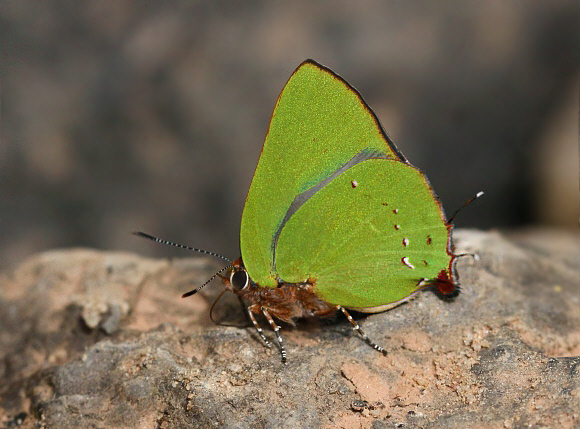
Introduction
Almost all neotropical Theclinae species are placed in the Eumaeini. The tribe is not particularly well represented in collections, so until fairly recently a high percentage remained unstudied, and were inappropriately filed away in the ‘convenience’ genus Thecla. Many taxonomists have attempted to rationalise the systematics of the Eumaeini, the most recent being Robbins who published a revision in 2004, reclassifying the taxa into 83 genera. Currently there are 1058 known species.
Taking into account their small size, secretive behaviour, and the great similarities between many species, it is estimated that about another 200 species probably remain to be discovered.
There are 17 Cyanophrys species, found variously from Mexico to Paraguay. All have metallic green undersides, marked with a row of white dots on the hindwing. All species possess a filamentous tail, but this is usually lost on examples that have been flying for more than a couple of days.
Cyanophrys herodotus is the commonest and most widespread member of the genus, being found from Mexico to Paraguay and Argentina.
Habitats
This species is found in open disturbed areas of tropical and subtropical rainforest and cloudforest, at altitudes from about 600m to at least 2000m.
Lifecycle
To be completed.
Adult behaviour
Males probably spend most of their time perching on bushes, where their green colouration would afford them excellent camouflage. They are most often seen however when imbibing moisture from rocks, boulders or damp sand. Although this is a sun-loving species, I have also encountered it on overcast days, at which times it is surprisingly active.
